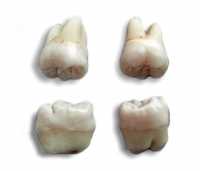
05 Jul Wisdom Teeth Extraction: Non-Opioid EXPAREL Reduced Need for Opioid Prescriptions
MedicalResearch.com Interview with:
Dr. Stuart Lieblich, DMD
Oral and maxillofacial surgeon
Avon, CT
MedicalResearch.com: What is the background for this study? How does EXPAREL® differ from other pain medication for dental work or other short-term procedures?
Response: This study analyzed the use of opioids and non-opioid options for postsurgical pain following third molar extraction (wisdom teeth removal). Our research team reviewed data from 600 patients who underwent third molar extraction, with 300 patients having received non-opioid option EXPAREL (bupivacaine liposome injectable suspension) and 300 patients that did not receive an infiltration of EXPAREL. The study aimed to show that reducing opioid prescriptions following this procedure may decrease opioid-related adverse events and the risk of opioid dependence.
EXPAREL is a non-opioid long-acting local anesthetic injected in the surgical area for pain control in the days following surgery. EXPAREL can be used for a variety of oral surgeries, orthopedic surgeries, C-sections, general surgeries and more. Unlike many other pain management options, EXPAREL is a not an opioid, so there is no risk of dependence or addiction.
MedicalResearch.com: What are the main findings?
Response: The analysis found that patients undergoing third molar extraction who received EXPAREL had statistically significant less opioids prescribed compared to those who did not. In fact, the EXPAREL patients were prescribed 80% fewer opioids. Additionally, only 3.3% of EXPAREL patients required an opioid prescription refill compared to 7.7% of patients who did not receive EXPAREL. The findings reveal that EXPAREL provides an opportunity to significantly reduce opioid use for third molar extraction without compromising patient care.
MedicalResearch.com: What should readers take away from your report?
Response: This analysis shows the clinical value of EXPAREL in the oral surgery space, where many patients would prefer a non-opioid option to manage postsurgical pain. Several studies have shown that wisdom tooth extraction is often the first-time younger adults are prescribed opioids, and alternatives like EXPAREL can help avoid this unnecessary opioid exposure altogether. The study also provides clinical evidence that EXPAREL not only effectively manages pain for oral surgery patients, but also greatly reduces the need for opioids and, therefore, eliminates associated sides effects and risks, including addiction and dependence.
MedicalResearch.com: What recommendations do you have for future research as a result of this work?
Response: It’s important to see positive data supporting the use of non-opioids for this procedure, especially knowing that wisdom tooth extraction is performed 3.5 million times annually in the United States. These results are encouraging because they indicate the use of EXPAREL in a multimodal pain management protocol provides an opportunity to significantly reduce opioid use for patients following surgery. As health care providers, we must continue to provide safe and effective alternatives to opioids to patients.
Disclosures and Citation: I was an investigator and author on the research, which was presented at the 97th General Session and Exhibition of the International Association for Dental Research in Vancouver, Canada. I am also a faculty member at the University of Connecticut School of Dental Medicine and in private practice of oral surgery in Avon, Connecticut. This research was sponsored by Pacira BioSciences.
[wysija_form id=”3″]
[last-modified]
The information on MedicalResearch.com is provided for educational purposes only, and is in no way intended to diagnose, cure, or treat any medical or other condition. Always seek the advice of your physician or other qualified health and ask your doctor any questions you may have regarding a medical condition. In addition to all other limitations and disclaimers in this agreement, service provider and its third party providers disclaim any liability or loss in connection with the content provided on this website.
Last Updated on July 5, 2019 by Marie Benz MD FAAD

